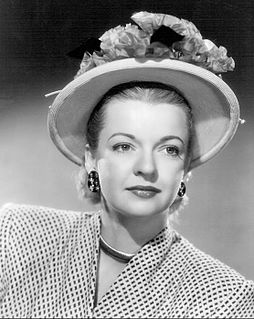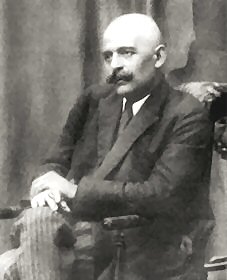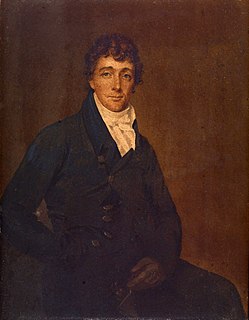A Quote by Joseph Addison
The important question is not, what will yield to man a few scattered pleasures, but what will render his life happy on the whole amount.
Related Quotes
[D]emocracy will soon degenerate into an anarchy, such an anarchy that every man will do what is right in his own eyes and no man's life or property or reputation or liberty will be secure, and every one of these will soon mould itself into a system of subordination of all the moral virtues and intellectual abilities, all the powers of wealth, beauty, wit and science, to the wanton pleasures, the capricious will, and the execrable cruelty of one or a very few.
Whatever events in progress shall disgust men with cities, and infuse into them the passion for country life, and country pleasures, will render a service to the whole face of this continent, and will further the most poetic of all the occupations of real life, the bringing out by art the native but hidden graces of the landscape.
For some reason or other man looks for the miracle, and to accomplish it he will wade through blood. He will debauch himself with ideas, he will reduce himself to a shadow if for only one second of his life he can close his eyes to the hideousness of reality. Everything is endured-disgrace, humiliation, poverty, war, crime, ennui-in the belief that overnight something will occur, a miracle, which will render life tolerable.
He will see himself and life and the world as truly as our human limitations will permit; realizing the brevity and minuteness of human life, he will realize also that in individual minds is concentrated whatever of value the known universe contains. And he will see that the man whose mind mirrors the world becomes in a sense as great as the world. In emancipation from the fears that beset the slave of circumstance he will experience a profound joy, and through all the vicissitudes of his outward life he will remain in the depths of his being a happy man.
The service a man renders his friend is trivial and selfish, compared with the service he knows his friend stood in readiness to yield him, alike before he had begun to serve his friend, and now also. Compared with that good-will I bear my friend, the benefit it is in my power to render him seems small.
A man never is happy, but spends his whole life in striving after something which he thinks will make him so; he seldom attains his goal, and when he does, it is only to be disappointed; he is mostly shipwrecked in the end, and comes into harbor with mast and rigging gone. And then, it is all one whether he has been happy or miserable; for his life was never anything more than a present moment always vanishing; and now it is over.
The truly educated man is not a man who knows a bit of everything, not even the man who knows all the details of all subjects (if such a thing were possible): the “whole man” in fact, may have little detailed knowledge of facts and theories...but he will be truly in touch with the centre. He will not be in doubt about his basic convictions, about his view on the meaning and purpose of his life. He may not be able to explain these matters in words, but the conduct of his life will show a certain sureness of touch which stems from this inner clarity.
I have studied many religions, many different persuasions of thought in Christian belief, and I have come, in this experience to this: the most important question in anyone's life is the question asked by poor Pilate in Matthew 27:22: 'What shall I do, then, with Jesus who is called Christ?' No Other question in the whole sweep of human experience is as important as this. It is the choice between life and death, between meaningless existence and life abundant. What will you do with Christ? Accept Him and life, or reject Him and die? What else is there?
The man whose bosom neither riches nor luxury nor grandeur can render happy may, with a book in his hand, forget all his torments under the friendly shade of every tree; and experience pleasures as infinite as they are varied, as pure as they are lasting, as lively as they are unfading, and as compatible with every public duty as they are contributory to private happiness.
Nothing but Christianity will give you the victory. Until a man believes in his heart that Jesus Christ is his Lord and Master... his course through life will be neither safe nor pleasant. My only regret is that I was so long blinded by my pleasures, my vices and pursuits, and the examples of others that I was kept fr...om seeing, admiring, and adoring the marvelous light of the gospel.



































